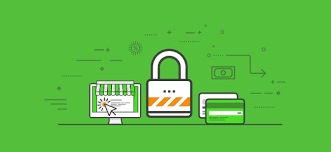SSL certificates come in a variety of shapes and sizes, but they’re all necessary to safeguard sensitive information such as credit card details, logins, email and FTP servers, VPNs, and a variety of other online applications. Its main purpose is to keep transactions between website users and the website secure.
SSL relies on a third-party Certificate Authority to acquire extremely sensitive data in a transparent manner (encrypted). VeriSign, Thawte, and GeoTrust are some of the most trustworthy Certificate Authorities.
When the http: element of a URL changes to https:, it indicates that the website is safe – perhaps. The lock icon indicates that the site and its visitor are connected over an encrypted tunnel, preventing third parties from intruding with traffic between them.
While most websites do not require an SSL certificate, Google wants all websites to be safe and recently stated that SSL will be included in their search method. Furthermore, Google rates SSL certificates depending on a variety of variables. A green lock icon, a yellow alert icon, or a red alert icon represents these. First and foremost, never submit credit card information online that does not display a lock icon.
If you click on the green lock symbol, it will display the domain for which the SSL was granted. Make verify that the URL you’re visiting matches that. The organization’s name will appear immediately next to the symbol if the site uses an EV-SSL certificate (extended validation). Websites for banks are excellent examples.
While a website has an SSL certificate, there appears to be unsafe information on the site itself, as shown by the yellow alert sign.
The red alert indicator indicates that there is either a problem with the certificate or that there is a high danger of insecure material on the website.
If you're running an e-commerce site, you don't need an SSL certificate
You need an SSL certificate (to be PCI compliant) if you’re collecting credit card details on your site or any element of the infrastructure that supports your site, but you don’t need one if transactions are processed on a third-party site (like PayPal). Please notice that PayPal’s site will have a lock symbol.
All major credit cards demand PCI compliance before they will enable you to take their cards on your site. They’ll also expect you to execute third-party security checks to ensure that the certificate’s installation and settings are accurate.
SSL certificates must be associated with a unique IP address
When converting from just a shared IP to a dedicated IP, domain name servers (DNS) must broadcast the change globally, which usually takes a few hours. However, I’ve seen it take up to a day.
Only one SSL certificate is allowed per account in cPanel
This basically implies that if you require more than one SSL, say for one subdomain, you’ll need to register a second cPanel account.
The catch of a year
Many hosting clients appear to be unaware that SSL certificates must be updated on a yearly basis, and they find themselves in a panic at the end of the first year going to purchase their certificate. Make a note of your site’s SSL certificate expiration date on your calendar, and give yourself at least one week to have a new certificate in place before the old one expires. SSL certificates are not renewed; instead, they are acquired and given new expiration dates.
Is the SSL certificate need to be purchased from your existing hosting provider?
Your existing hosting company does not have to sell you an SSL certificate, but they will almost certainly charge you to install it for you. If you buy a certificate from them, some hosting companies will install it for free.



